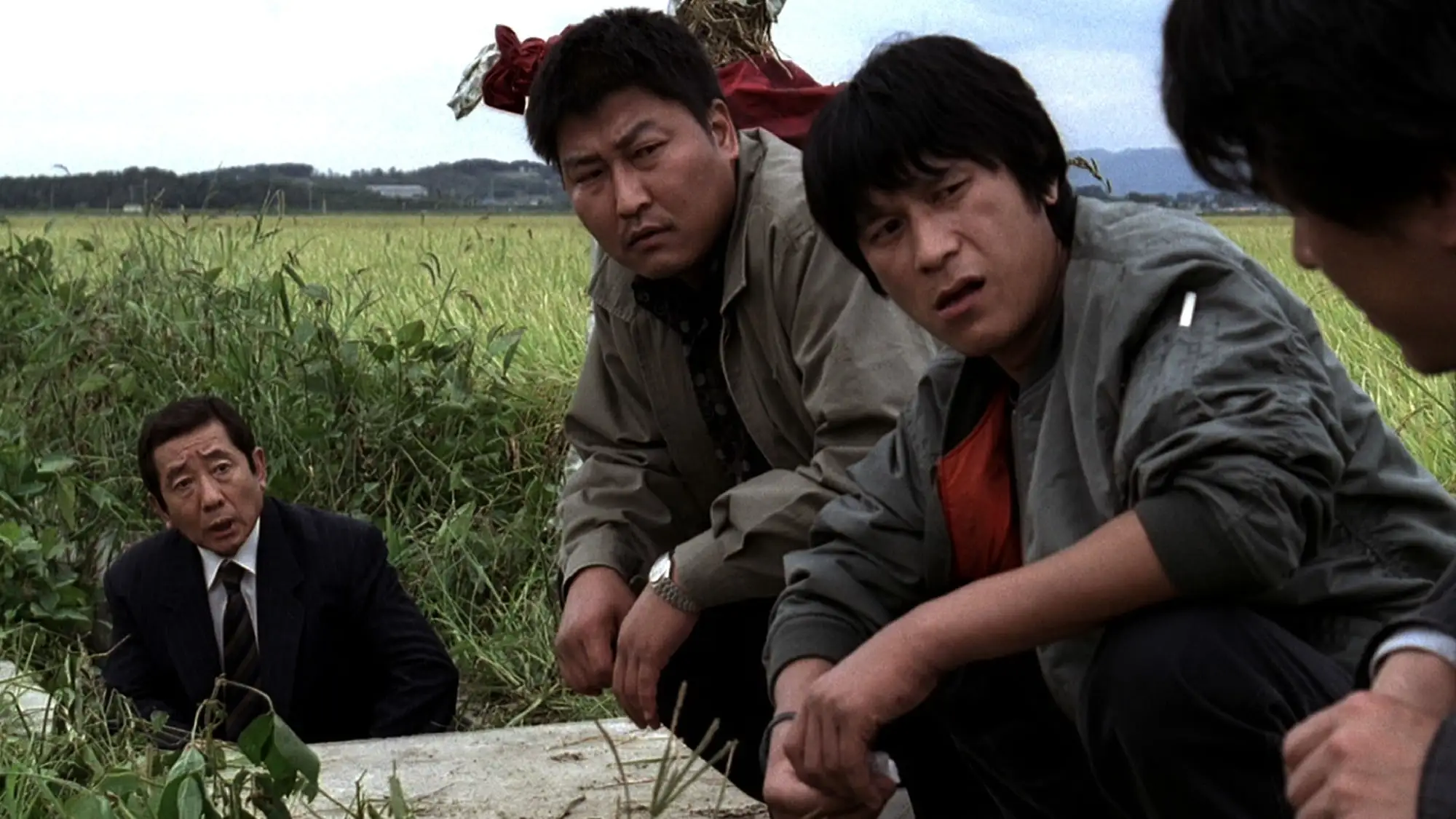
The Parasite movie is a cinematic masterpiece that captivated audiences worldwide. Directed by Bong Joon-ho and released in 2019, this film blends dark comedy, social commentary, and thriller elements to deliver a story that is as thought-provoking as it is entertaining. Winning the Academy Award for Best Picture, the Parasite movie has become a landmark in modern cinema, redefining what international films can achieve.
Overview of the Parasite Movie
At its core, the Parasite movie explores themes of class disparity, family, and survival. The story follows the Kim family, who live in a semi-basement apartment struggling with financial hardship. Through a series of clever manipulations, they become employed by the wealthy Park family, each securing a job in the household under false pretenses. As their lives intertwine, unexpected events escalate, revealing the dark side of human ambition and inequality.
Read More: The Magic of the La La Land Movie
Characters and Performances
The strength of the Parasite movie lies in its characters. Each member of the Kim family is portrayed with nuance and depth, highlighting both their resourcefulness and moral ambiguity. The Park family, on the other hand, represents privilege and naivety, serving as a counterpoint to the Kims. The performances are impeccable, allowing audiences to empathize with both families while understanding the social commentary embedded in the narrative.
Read More: Exploring the Depth of Film Interstellar
Social Commentary and Themes
The Parasite movie excels in delivering sharp social commentary without losing its entertainment value. It examines the divide between rich and poor, highlighting the struggles of those living in poverty and the obliviousness of the wealthy. The movie also delves into themes of greed, opportunism, and the lengths people will go to survive. Through clever storytelling and visual symbolism, Bong Joon-ho crafts a narrative that resonates universally.
Read More: Exploring the Depths of Film Inception
Storytelling and Plot Twists
One of the most remarkable aspects of the Parasite movie is its unpredictable plot. What begins as a seemingly light-hearted story about a struggling family quickly evolves into a tense, dark thriller. Each twist and turn is carefully crafted, keeping audiences on the edge of their seats. The balance between humor, suspense, and tragedy demonstrates the film’s mastery of tone and pacing, making it unforgettable.
Cinematography and Visual Design
The visual storytelling in the Parasite movie is exceptional. Cinematographer Hong Kyung-pyo uses lighting, camera angles, and spatial design to emphasize themes and mood. The contrast between the Kim family’s cramped semi-basement and the Park family’s expansive modern home visually reinforces class differences. Symbolism in the set design and composition adds layers to the story, making every frame meaningful and visually striking.
Symbolism and Metaphors
The Parasite movie is rich with symbolism. The architecture of the homes, the use of stairs, and even the weather reflect social hierarchies and emotional states. For instance, the semi-basement represents limitation and struggle, while the Park mansion symbolizes wealth and aspiration. Rain and flooding in the story serve as metaphors for chaos and vulnerability, enhancing the film’s narrative depth.
Humor and Dark Comedy
Despite its intense social themes, the Parasite movie balances tension with humor. The film’s dark comedy emerges naturally from character interactions and absurd situations. This blend of humor and suspense allows audiences to engage with serious topics while remaining entertained. The comedy enhances the film’s accessibility, making its social critique both impactful and memorable.
The Role of Family
Family dynamics are central to the Parasite movie. The Kims operate as a unit, relying on ingenuity and loyalty to navigate challenges. Their relationships showcase both love and tension, emphasizing how circumstances can shape moral choices. The Park family’s interactions, in contrast, reveal superficiality and entitlement, highlighting the social commentary on privilege and dependence.
Impact on Global Cinema
The Parasite movie has had a profound impact on global cinema. As the first non-English film to win Best Picture at the Oscars, it broke barriers for international films in mainstream Hollywood. Its success demonstrated that compelling storytelling, strong characters, and social relevance can resonate across cultures. The film’s acclaim has inspired filmmakers worldwide to explore bold narratives and socially conscious themes.
Music and Sound Design
The soundtrack of the Parasite movie enhances its tone and emotional impact. Composer Jung Jae-il’s score blends subtle motifs with dramatic cues, underscoring tension, humor, and suspense. Sound design is also used effectively, from the ambient noises of the city to the stark silence in critical moments, creating an immersive experience that draws audiences deeper into the story.
Themes of Deception and Morality
Deception is a recurring theme in the Parasite movie. The Kims’ strategy to infiltrate the Park household raises ethical questions about survival and morality. Each character’s actions are motivated by necessity or desire, blurring the line between right and wrong. This exploration of moral ambiguity contributes to the film’s complexity, encouraging viewers to reflect on societal pressures and human behavior.
Awards and Critical Acclaim
The Parasite movie received widespread acclaim from critics and audiences alike. It won four Academy Awards, including Best Picture, Best Director, Best Original Screenplay, and Best International Feature Film. These accolades underscore the film’s excellence in storytelling, direction, acting, and cinematography. Its recognition highlights the global appeal of its narrative and themes.
Pacing and Narrative Structure
The narrative structure of the Parasite movie is meticulously designed to maintain tension and engagement. The pacing gradually shifts from comedy to suspense, leading to a climactic conclusion that surprises and unsettles viewers. This careful balance between exposition, character development, and plot escalation ensures that the story remains compelling from beginning to end.
Audience Engagement
The Parasite movie captivates audiences by combining relatable human struggles with unexpected twists. Viewers are drawn into the characters’ lives, empathizing with their ambitions, frustrations, and fears. The film’s universal themes of inequality, aspiration, and survival make it resonate across demographics, cultures, and languages, contributing to its global success.
Behind the Scenes Insights
Bong Joon-ho and his team approached the Parasite movie with meticulous attention to detail. Set design, casting, and script development were carefully curated to enhance narrative impact. Interviews with the director reveal intentional choices in framing, lighting, and dialogue that reinforce the film’s social commentary. These behind-the-scenes efforts demonstrate the craftsmanship behind the movie’s brilliance.
Cultural Significance
The Parasite movie has left a lasting mark on culture and society. Its exploration of class divides, ambition, and human nature sparked discussions worldwide about social inequality. The film has become a reference point in discussions of modern cinema, demonstrating the power of storytelling to influence thought and awareness. Its cultural significance extends beyond film, resonating in literature, art, and public discourse.
Rewatch Value
The Parasite movie offers high rewatch value due to its layered storytelling and intricate details. Each viewing reveals new nuances in character behavior, symbolism, and visual composition. Fans often notice subtle foreshadowing, hidden motifs, and thematic connections that enhance appreciation. This depth encourages multiple viewings, solidifying its status as a modern classic.
Why the Parasite Movie Resonates
The Parasite movie resonates because it addresses universal themes through compelling characters and narrative tension. Its blend of humor, suspense, and social commentary creates a multifaceted experience that is both entertaining and intellectually stimulating. Audiences connect with its portrayal of ambition, struggle, and human nature, making the film memorable long after viewing.
Lessons from the Film
The Parasite movie offers valuable lessons about empathy, morality, and social awareness. It challenges viewers to consider the implications of inequality and the human drive for survival. Through its intricate plot and rich characterization, the film encourages reflection on personal choices, societal pressures, and ethical dilemmas. These lessons contribute to its enduring relevance and impact






